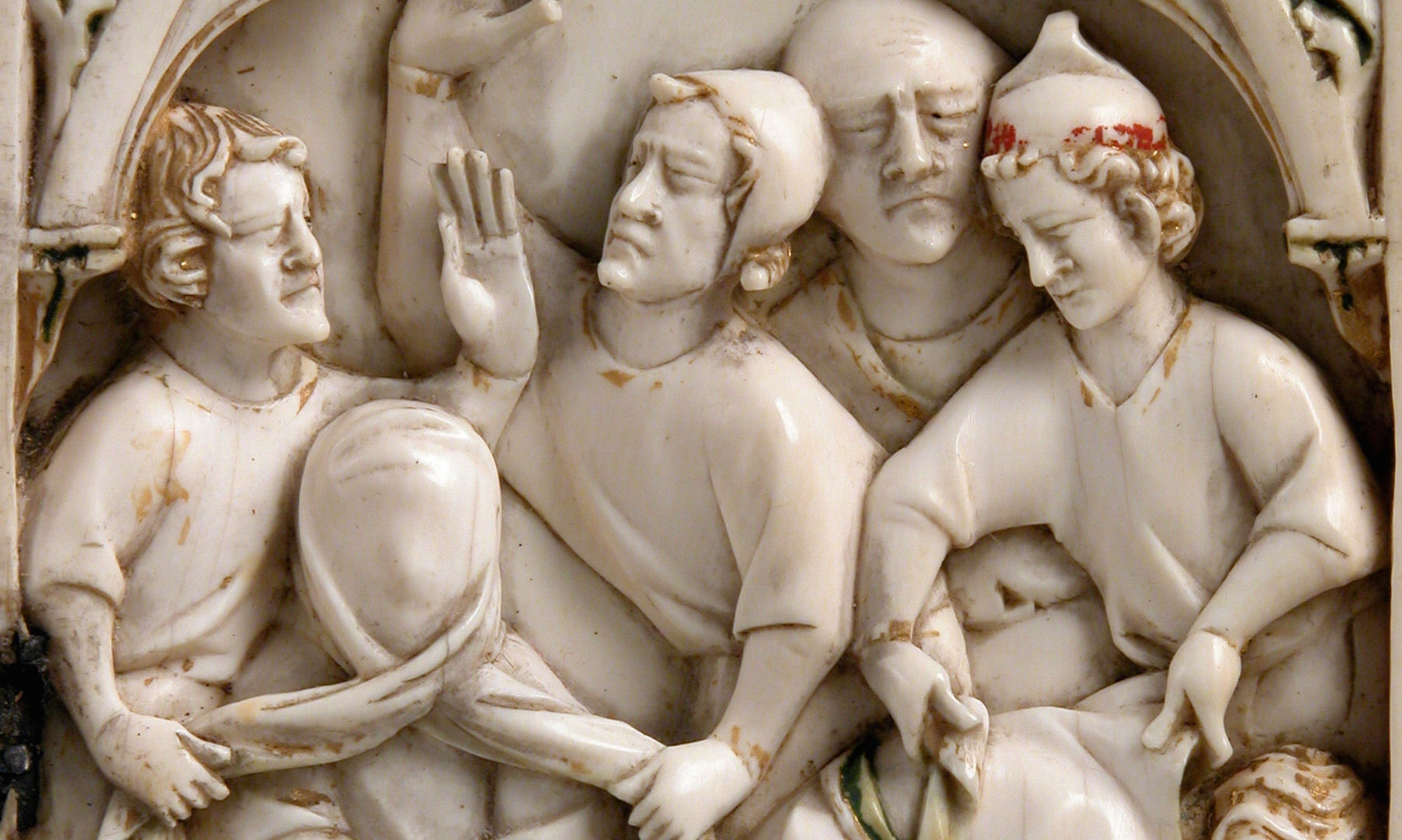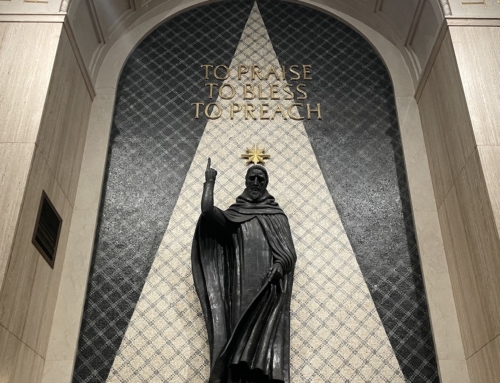Imagine never being ashamed, having not even the smallest embarrassing memory.
We were created to live without shame. Being in the presence of God was always meant to be a pure delight—the pure delight. But then, after the first sin, Adam and Eve saw themselves differently, they felt the sting of shame, and they hid themselves from the figurative “face” of God (Gen 3:8). After the expulsion from Eden, the relationship between God and man changed, as did the effect of God’s “face” on man.
The awesome perfection of the Lord’s face became too much for man to bear, and coming face to face with God would kill you. God says as much: “But you cannot see my face, for no one can see me and live” (Ex 33:20). The notable exception to this rule was Moses, but even then, when Moses came down from the mountain, the experience of such intimate union with God caused his face to shine so brilliantly that he had to cover it with a veil for the sake of the people.
But the idea of the face of God continued to possess a beauty and a desirability equal to its terribleness. The Scriptures, particularly the Psalms, are filled with the desire to behold God’s face: “Do not hide your face from me” (Ps 27); “let me see your face; when I awake, let me be filled with your presence” (Ps 17). To behold the face of God becomes the ultimate reward of the just man. To wish the light of the Lord’s face was to wish a blessing: “The Lord let his face shine upon you, and be gracious to you!” (Num 6:25) But Israel continued to turn away from this face, continued to sin and suffer as a result of that sin.
And then the Incarnation.
Jesus came. God took on a true human face. No longer did being “face to face” with God have only an analogical meaning; God has a human face! The desire of every human heart became flesh and lived among us…
Yet still, we turned our faces from his. Even worse, we marred his: “They all condemned him as deserving to die. Some began to spit on him. They blindfolded him and struck him and said to him, “Prophesy!” And the guards greeted him with blows” (Mk 14:64-65).
Doubtless, there were a number of soldiers in that cohort on that day who were quick-witted, those to whom the rest looked for a good joke. Doubtless, when the soldier thought to blindfold the Jewish prophet, hit him, and snort “Prophesy!”, it was received with great hilarity. What would have stopped us from joining in?
To remove our shame and its burden, Jesus takes that shame upon himself, and during the Passion his atoning action is reflected precisely in his visage: “He had no majestic bearing to catch our eye, no beauty to draw us to him. He was spurned and avoided by men, a man of suffering, knowing pain, / Like one from whom you turn your face” (Is 53:2-3; indeed the entire chapter is very worthy of meditation).
In the image featured above, note the Lord’s humility. The panel is filled with bodies, movement, emotion. The man with his face covered sits still, quietly enduring the punishment and ridicule heaped on him by those he created, by those for whom he came. The face that shone like the sun at the Transfiguration, that made men fall to the ground in awe and trembling, the face that was sought after for millennia—this face was covered with a cloth and struck over and over.
Reflect on this: any single one of those soldiers, any man that comes out to see this holy fool and mock him, hit him, spit on him, kill him, any one of those men was reason enough for God to die. Even as their fists were crashing into his jaw, the Lord was willing their very existence, was loving them in a unique way, as if they were the only ones he ever created. We recall that we do the same to Jesus, albeit in different ways, with all of the “little” ways that we sin. And yet God desires our faces to be turned toward his, so that he may remove the shame that those sins have brought. And it is this face that is our true end, that is meant to be our reward and joy forever.
“They will look upon his face, and his name will be on their foreheads. Night will be no more, nor will they need light from lamp or sun, for the Lord God shall give them light, and they shall reign forever and ever” (Rev 22:4-5).
✠
Image: From the holdings of the Metropolitan Museum of Art (www.metmuseum.org), Polyptych with Scenes from Christ’s Passion







